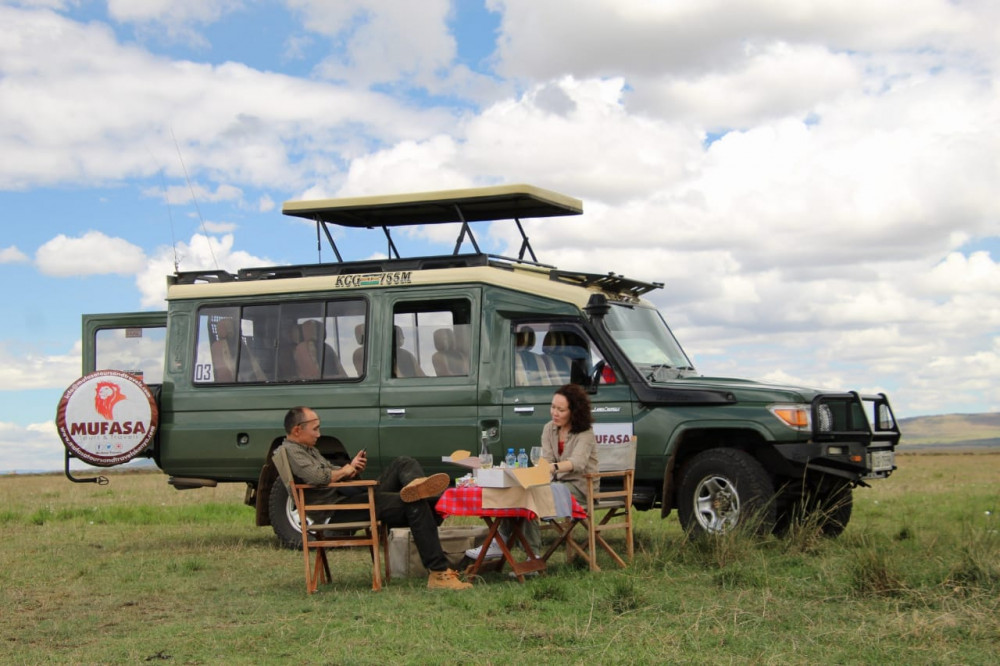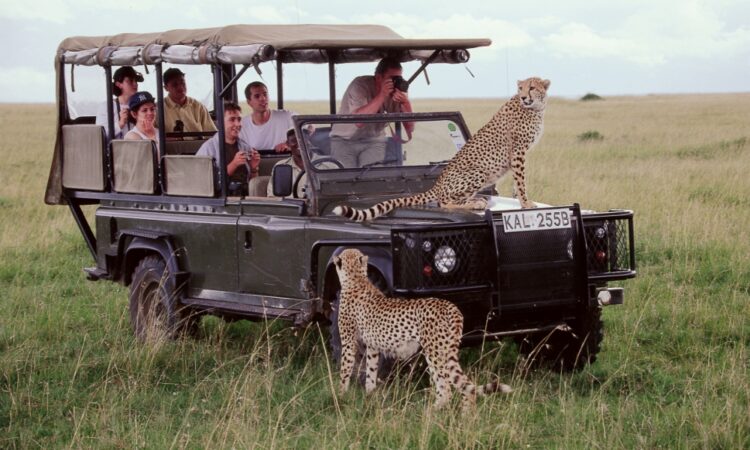Free Tips For Deciding On Kenya Holiday Packages
Wiki Article
What Health And Safety Precautions Do I Need To Be Aware Of While On Vacation In Mombasa?
To ensure you enjoy an enjoyable and safe trip in Mombasa Kenya it is vital to take necessary health precautions. Here are some essential health considerations.
1. Vaccinations
Routine Vaccinations: Ensure that you are up-to-date on routine vaccines such as measles-mumps-rubella (MMR), diphtheria-tetanus-pertussis, varicella (chickenpox), polio, and your yearly flu shot.
Hepatitis A is recommended for all travelers because of the dangers of drinking water and food that is contaminated.
Hepatitis B (Hepatitis B) is recommended for those who might have been exposed to bodily fluids or blood, e.g. through sexual or medical contact.
Typhoid vaccination is recommended for all travelers, especially those visiting rural or smaller areas, staying with family, or eating in unfamiliar locations.
Yellow Fever. A certificate of vaccination may be needed for travelers arriving in countries in which yellow fever is at risk. Find out the most recent requirements.
Think about rabies for those who participate in outdoor activities like camping, hiking, and caving.
2. Malaria Prevention
Mombasa is a region that has an extremely high rate of malaria. Talk to your physician about the best antimalarial treatment for you.
Use DEET-based insect repellent with long sleeves, long pants, and an insect net to prevent bites from mosquitoes, particularly at night.
3. Food and Water Safety
Drinking water safely: Only use the water that is bottled or boil boiled. Avoid tap water, ice cubes, and drinks that are not sealed.
Be Safe: Eat only cooked and well-cooked food. Avoid eating raw or undercooked seafood, meats, and unwashed fruits and vegetables. Be cautious with street food and choose reputable dining establishments.
4. Traveler's Diarrhea
Hand sanitizers or soap and water are efficient ways to avoid infections. Beware of drinking and eating food from a source that is not safe.
Always carry medications such as Imodium (loperamide) as well as salts or oral water rehydration. To treat serious instances, consult your physician for antibiotics.
5. Sun Protection
Sunscreen Apply sunscreen with an SPF at least 30. Make sure to apply it regularly, especially if you've been swimming or sweating.
Protective Clothing: Use glasses and hats, wear long sleeves, light clothing to minimize exposure to the sun.
6. Heating and Hydration
To avoid dehydration, drink plenty of fluids. Dehydration is often caused by excess caffeine or alcohol consumption.
Beware of overexertion. Rest and stop, especially when the sun is at its highest. Seek shade and cool environments to avoid heat exhaustion and heat stroke.
7. Safety in Water Activities
Swimming in Areas Delineated: Take note of the local advice and swimming conditions, as well as any potential dangers such a strong current.
Awareness of marine life Be aware of the dangers of marine life and stay clear of it, including seaurchins and jellyfish. When walking in shallow water take water shoes.
8. Care and Insurance. Care and Insurance
Travel Insurance - Be sure that you have a comprehensive insurance for medical emergencies, including evacuation.
Local Medical Facilities: Become familiar yourself with the location of medical facilities that are reputable in Mombasa. Hotels with major chains will usually provide you with information on doctors and hospitals nearby.
You will need to bring your medication along with prescriptions in the form of copies.
9. Emergency Contacts
You can get the contact information of your country’s embassy in Kenya by contacting them.
Local Emergency Phone Numbers:
By following these tips for health, you can minimize risks and enjoy your time in Mombasa. See the top Airport transfer to Mombasa for site advice including kenya safari and beach, mombasa safaris kenya, mombasa tour packages, safari trips in africa, safari excursions, mombasa tour packages, mombasa tour companies, african safari africa, africa and safari, travel tours in kenya and more.

What Accommodation Considerations Should I Be Aware Of During My Stay In Mombasa?
It is important to choose the right lodging when planning a trip in Mombasa. This will ensure that you have the most pleasant and enjoyable stay. Here are a couple of important points to keep in mind:
1. Accommodation types
Hotels: Mombasa offers a range of hotels, from budget to luxurious. A lot of hotels are situated along the beachfront and provide facilities such as restaurants, pools and tour guides.
Resorts are a type of resort that tends to be more upscale and offer a variety of services, including all-inclusives entertainment, and water sports.
Guesthouses and B&Bs - For an extra personal touch staying in guesthouses and B&B establishments. They can offer a homelier feel and local hospitality.
Vacation rentals: Airbnb offers flexibility and is an affordable option for larger groups or longer stay.
Hostels are an excellent option for budget travelers. They have basic amenities and are ideal for meeting others who are traveling.
2. Location
The distance to the place you wish to go to is vital. Some of the most sought-after areas are Nyali Beach and Diani Beach. The city's center is also within Fort Jesus.
Consider Public Transport or Proximity to the main roads if You Want to Explore Other parts of Mombasa.
Safety: Do some research regarding the security of the neighborhood you are staying in. Be sure to stay in well-known and reputable communities.
3. Amenities and Services
Internet Access: Ensure that your hotel is equipped with reliable WiFi. This is particularly important if you are constantly traveling.
Find out what dining options are available at your accommodation.
Recreational Facilities: Search for amenities like fitness centers, swimming pools, and spas if these are important to you.
Family-friendly features When you travel with kids, look for accommodations that offer family-friendly features such as kids club and babysitting.
4. Reviews and Ratings
Guest Reviews: You can read reviews of other travelers on sites such as TripAdvisor.com, Booking.com or Google.
Search for hotels with high ratings regarding cleanliness as well as service.
5. Budget
Cost: Decide on your budget, and locate accommodations that fit within it. Prices can vary widely depending on the type, location, and time of year.
Hidden costs: Be aware of any extra costs like parking fees, resort fees or other facilities.
6. Cultural Experience
Local vs. international: Decide if you would prefer a hotel experience that is inspired by the international chains or that has a more local feel and culture.
Community-based Tourism: Choose eco-lodges that are based on the community and offer a culturally immersive experience.
7. Book Flexiblely
The cancellation policy will tell you about any restrictions or if the travel plans can be changed.
Booking Platforms: Select a booking platform with excellent customer service and secure payments.
8. Special Requirements
Accessibility - Make sure that the accommodation you choose is suitable for any special needs, like accessibility for wheelchairs.
Check the policy on pets of the hotel If you're planning to travel with pets.
9. The security of your own Home
Secure Environment: Consider selecting a hotel that has 24-hour security measures and staff, such as security-ensuring parking, 24 hour reception or security.
Personal belongings: Ensure that you have safes in your bedroom or other safe storage options for valuables.
Take note of these aspects to find the perfect hotel in Mombasa that will meet your requirements and enhances your holiday experience. View the most popular mombasa city tour for site tips including mombasa tours, mombasa safari packages, kenya beach and safari holiday, africa safaris and tours, cheap kenya safari packages, kenya holiday packages, tour agents in kenya, kenya tours and safaris, tours and safaris, kenya safari and beach and more.

What Are The Environmental Responsibilities I Must Be Aware Of When On Vacation In Mombasa Kenya?
To protect the natural beauty and variety of Mombasa in Kenya It is essential to be mindful of the environment. Here are a few important environmental obligations you need to be aware of
1. Sustainable Accommodation
Eco-friendly Hotels: Search for accommodation that is sustainable. Find certifications such as Eco-Tourism Kenya and other eco-labels.
Participate to hotel initiatives for conservation of water and energy. Reuse linens and towels. Shut off lighting and air conditioning when they are not being used.
2. Responsible Wildlife Observation
Respect wildlife: Stay away from them so that you don't disturb. Follow the instructions given by your tour guide.
Avoid Feeding Animals: Feeding wildlife can disrupt their natural diet and behaviour.
Leave No trace. Don't litter parks or wildlife reserves. Bring all garbage with you and dispose of it in a proper manner.
3. Plastic Reduction
Avoid single-use products. Use a reusable bottle for water along with a shopping bag, and the utensils.
Support Local Initiatives: Participate in or help local beach cleanup efforts and organisations working to decrease the amount of plastic pollution.
4. Water Conservation
Mombasa suffers from water scarcity. Take shorter showers and turn off the taps when you're not using them.
Eco-Friendly Product: Reduce the impact of water pollution using biodegradable, sustainable products.
5. Energy Conservation
Reduce Energy Consumption. Limit the use air conditioning and unplug all electronic devices in the event that they aren't in use.
Help support renewable Energy by selecting accommodation and tour providers that use renewable energies.
6. Sustainable Transportation
Cut down on your carbon footprint using public transport options, such as matatus or buses whenever it is possible.
Think about eco-friendly alternatives like hiring a bicycle or walking a short distance. There are some places that offer eco-friendly taxis.
7. Supporting Local Economic Development
Buy Local: Purchase items such as souvenirs, crafts, and food locally, to help local companies.
Fair Trade: Choose products that are certified as fair trade to ensure that local producers receive fair compensation.
8. Environmental Education
Learn and Share - Educate yourself on the environment in your area, as well as the conservation efforts. Do share your expertise with others in order to raise awareness.
Respect local cultures. Respect and understand customs and local practices in connection with the protection of natural resources.
9. Marine Conservation
If you're snorkeling or diving make sure you are not touching coral reefs. Use sunscreen that is safe for reefs to safeguard marine life.
Avoid dumping trash into the ocean. Join or help support marine conservation programs.
10. Ethical Souvenirs
Beware of products that contain wildlife Don't buy items made of endangered species like tortoiseshell or ivory.
Sustainable Materials: Purchase items made of recycled or sustainable materials.
11. Participate in conservation Activities
Volunteering: Participate in local conservation projects or community-based tourism initiatives.
Donate to local NGO's. Contribute to local NGOs, and organizations dedicated to protecting the environment.
12. Responsible Travel Policies
The size of the group: Traveling in small groups can reduce the impact on the environment.
Eco-Tours. Choose tour operators committed to sustainable practices and who follow eco-friendly methods.
In keeping these environmental responsibilities in mind, it is possible to help preserve the beauty and beauty of Mombasa and the diversity of the region for future generations. View the recommended kenya day tours for more recommendations including kenya mombasa holiday packages, trips to kenya, safari trips in kenya, kenya mombasa holiday packages, tour and travel company, kenya tour operator, african safari excursions, safari trips in kenya, trips to kenya safari, kenya tours and more.
